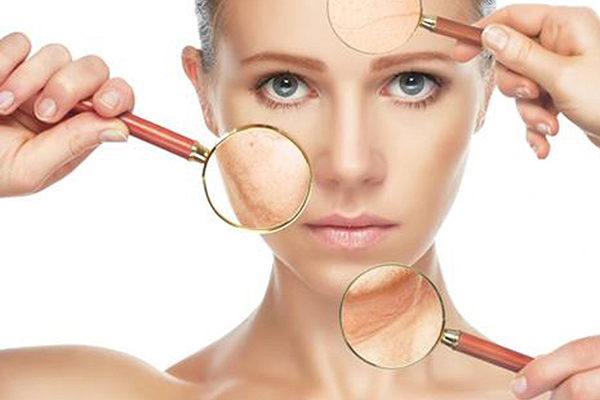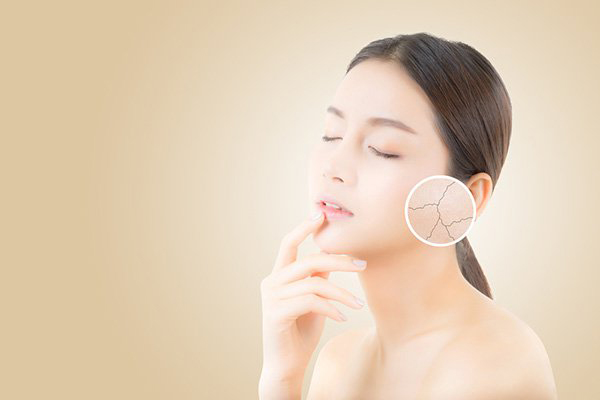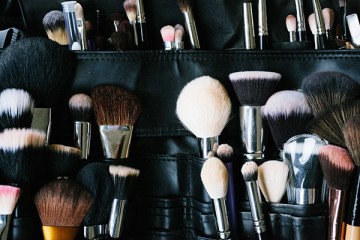Skin Tips for Anti-Aging
1. Protect your skin from the sun
1.1. Apply sunscreen correctly
Use a broad-spectrum sunscreen with SPF 30 or higher and apply it generously to all exposed skin. Don't forget to regions that are frequently forgotten, such as your ears, neck, and tops of your feet. Reapply every 2 hours or more frequently if you are swimming or perspiring.
1.2. Seek shade
Seek shade to reduce direct exposure when the sun is at its heaviest, usually between 10 a.m. and 4 p.m. Umbrellas, trees, or canopies can provide additional protection.
1.3. Wear protective clothing
Opt for clothing with tightly woven fabrics and long sleeves to cover your arms and legs. Sunglasses with UV protection protect your eyes and the sensitive skin around them, while wide-brimmed hats can assist shelter your face, neck, and ears.
1.4. Use additional sun protection measures
Consider using umbrellas, sun-protective clothing, or accessories, like UV-blocking sleeves or gloves for added protection, especially during extended sun exposure.

2. Stay hydrated
2.1. Drink an adequate amount of water
Aim to consume at least 8 glasses of water (about 2 liters) per day. This recommendation may vary based on individual needs and activity levels, so listen to your body and adjust accordingly.
2.2. Opt for purified or filtered water
While the specific type of water may vary depending on availability and personal preference, opting for purified or filtered water can ensure you are consuming clean and safe water for optimal hydration.
2.3. Spread water intake throughout the day
Instead of drinking large amounts of water at once, try to spread your water intake throughout the day. Sip water regularly to maintain hydration levels and support your skin's moisture balance.
3. Follow a consistent skincare routine
3.1. Gentle cleansing
Use a mild cleanser suitable for your skin type to remove impurities, excess oil, and makeup without stripping away natural oils. Cleanse your face twice a day, in the morning and evening, to maintain a clean and fresh complexion.
3.2. Exfoliation
Exfoliate your skin 1-2 times a week to slough off dead skin cells and reveal a brighter, smoother complexion. Choose a gentle exfoliator that suits your skin type and avoid harsh scrubbing, as it can irritate the skin. Exfoliating helps promote cell turnover and allows skincare products to penetrate better.
3.3. Moisturizing
Apply a moisturizer suited for your skin type immediately after cleansing and exfoliating. Moisturizers help replenish moisture, maintain hydration, and improve the skin's barrier function. Look for products with hydrating ingredients, including hyaluronic acid or ceramides.
4. Use anti-aging products
4.1. Retinol
Retinol, regarded as the gold standard anti-aging agent, promotes skin cell turnover, improves collagen formation, and reduces fine lines and wrinkles for a more youthful appearance. Starting with a low concentration, gradually increase it as tolerated.
4.2. Antioxidants
Be on the lookout for items with antioxidants, like vitamins C and E. Vitamin C contributes to skin brightness, skin tone uniformity, and environmental damage defense. Vitamin E provides moisture, helps improve skin texture, and fights free radicals that contribute to aging.
4.3. Hyaluronic acid
This hydrating ingredient helps retain moisture in the skin, promoting plumpness and reducing the appearance of fine lines and wrinkles. It provides an added boost of hydration, leaving the skin looking more supple and youthful.

5. Get sufficient sleep
Getting sufficient and quality sleep is crucial for promoting youthful-looking skin. You should aim to achieve 7-9 hours of sleep each night to allow your body to undergo cellular repair and regeneration processes.
During sleep, your skin works to repair damage caused by environmental factors and replenish collagen, which helps maintain its elasticity and firmness. Quality sleep also reduces the likelihood of developing under-eye circles and promotes a refreshed and rejuvenated appearance.
6. Eat a nutrient-rich diet
6.1. Fruits and vegetables
Include a wide variety of colored fruits and vegetables in your diet. Berry, citrus, leafy greens, carrots, bell peppers, and sweet potatoes are a few of these. They are rich in vitamins A, C, and E, which help promote collagen production, protect against free radicals, and maintain skin elasticity.
6.2. Whole grains
Choose whole grain products, like whole wheat bread, brown rice, quinoa, and oats. They offer crucial nutrients, like zinc and selenium, which promote the health of the skin and aid in the regeneration of damaged cells.
6.3. Lean proteins
Include lean protein sources, such as fish, poultry, tofu, beans, and lentils. These foods contain amino acids necessary for the production of collagen and elastin, which are essential for maintaining skin structure and firmness.
7. Avoid smoking and excessive alcohol consumption
Smoking and heavy alcohol intake can have detrimental effects on the skin, leading to the formation of wrinkles, dullness, and loss of elasticity.
While smoking reduces blood flow to the skin, depriving it of oxygen and essential nutrients, alcohol dehydrates the body and disrupts collagen production.
Quitting smoking and moderating alcohol consumption can significantly improve the health and appearance of your skin, helping you maintain a more youthful and vibrant complexion.
8. Manage stress
Chronic stress can have detrimental effects on your skin's health, leading to accelerated aging. To maintain youthful-looking skin, prioritize stress management by incorporating stress-reducing techniques into your daily routine. These practices promote overall well-being and help counteract the negative impact of stress on your complexion.
9. Be gentle with your skin
Harsh scrubbing, tugging, or pulling on the skin can cause irritation and damage. Instead, opt for gentle skincare products and techniques that respect your skin's natural barrier.
When cleansing, use a mild cleanser and gentle circular motions with your fingertips. Pat your skin dry with a soft towel instead of rubbing it vigorously. Similarly, when applying skincare products or makeup, use light pressure and avoid excessive pulling or stretching of the skin.
In conclusion,
Taking care of your skin is crucial for maintaining a youthful and radiant appearance. By following these skin tips, you can protect your skin from the damaging effects of the sun, keep it hydrated and moisturized, and incorporate effective anti-aging products into your skincare routine. Additionally, adopting a healthy lifestyle with proper nutrition, sufficient sleep, and stress management contributes to overall skin health. Remember, consistency is key, so make these practices a part of your daily routine to enjoy long-term benefits.
- Related post: Best Natural Ingredients for Your Skin






